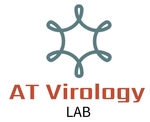Abstract
BACKGROUND: Strengthening mRNA vaccine development in LMICs is essential for enhancing global pandemic preparedness. This study evaluated the safety and immunogenicity of Comvigen, a bivalent SARS-CoV-2 vaccine, in comparison to the Comirnaty bivalent vaccine (Comirnaty).
METHODS: This phase II, randomised, open-label, non-inferiority trial was conducted in Thailand across four centres. Participants (n = 450) were randomly assigned (2:1) to receive either Comvigen (50 μg) or Comirnaty (30 μg), using block randomisation (size = 9). Eligible participants had completed at least 2 doses of any approved COVID-19 vaccine, with the last mRNA-vaccine dose given over 3 months before enrolment. The non-inferiority margin of a geometric mean ratio (GMR) of 0.67. The primary immunogenicity endpoint was pseudovirus neutralisation titres (psVNT-50) against SARS-CoV-2 wild-type and Omicron BA.4/BA.5 at Day 29. Safety outcomes included local and systemic adverse reactions up to six months post-vaccination. Immunogenicity analyses were conducted on the Per-Protocol (PP) population and the modified Intent-to-Treat (mITT) population; safety analyses included all participants. Laboratory personnel were blinded to vaccine assignment (ClinicalTrials.gov: NCT05930730).
FINDINGS: Between October and November 2023, 450 participants were enrolled (median age of 36 years, IQR 30-45). At day 29, the geometric mean titre (GMT) of psVNT-50 against wild-type virus increased from 475.9 to 2062.9 for Comvigen and from 458.8 to 1905.1 for Comirnaty (GMR 1.1, 95% CI: 1.0-1.2), meeting non-inferiority criteria. Against Omicron BA.4/BA.5, GMTs were 3909.8 for Comvigen and 3288.6 for Comirnaty (GMR 1.2, 95% 1.0-1.4). Local and systemic reactions were more frequent with Comvigen (91% vs. 78%, p = 0.0002, 79% vs. 70%, p = 0.028) but were mild or moderate and transient with no difference in fever (6% vs. 5%, p = 0.84).
INTERPRETATION: Comvigen demonstrated non-inferiority immunogenicity to Comirnaty and had a comparable safety profile, supporting mRNA vaccine development for global access and pandemic preparedness.
FUNDING: Covid-19 Pandemic Emergency Fund granted by Thailand's National Economic and Social Development Council provided major funding. Supplementary funding was provided by National Vaccine Institute (NVI), Thailand; Center of Excellence in Vaccine Research and Development (Chula VRC), Faculty of Medicine, Chulalongkorn University; Chulalongkorn University Second Century Fund (C2F); BioNet-Asia and Public Donation through Covid-19 vaccine development fund of the Faculty of Medicine, Chulalongkorn University and the Thai Red Cross Society, Thailand.
